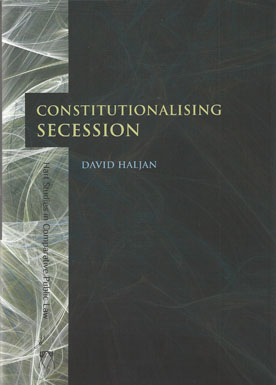
Constitutionalising Secession proceeds from the question, 'What, if anything, does the law have to say about a secession crisis?' But rather than approaching secession through the optic of political or nationalist institutional accommodation, this book focuses on the underpinnings to a constitutional order as a law-making community, underpinnings laid bare by secession pressures.
Relying on the corrosive effects of secession, it explores the deep structure of a constitutional order and the motive forces creating and sustaining that order. A core idea is that the normativity of law is best understood, through a constitutional optic, as an integrative, associative force.
Constitutionalising Secession critically analyses conceptions of constitutional order implicit in the leading models of secession, and takes as a leading case-study the judicial and legislative response to secession in Canada. The book therefore develops a concept of constitutionalism and law-making - 'associative constitutionalism' - to describe their deep structure as a continuing, integrative process of association.
This model of a dynamic process of value formation can address both the association and the disassociation of constitutional systems. Constitutionalising Secession concludes by examining the ramifications of this constitutional approach for the position of international law.